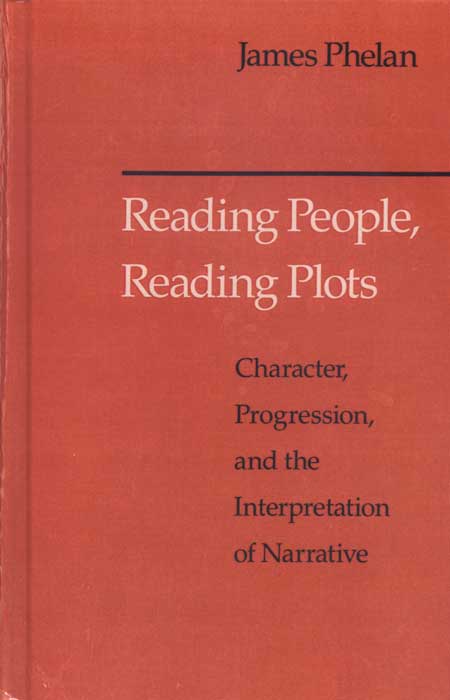Reading People, Reading PlotsCharacter, Progression, and the Interpretation of NarrativeJames PhelanTheory and Interpretation of Narrative |
 1989 Literary Theory 238 pp. | |||
|
leave / read comments and critiques of the book • Explore More Living to Tell About It: A Rhetoric and Ethics of Character Narration by James Phelan A Companion to Narrative Theory, edited by James Phelan and Peter Rabinowitz |
James Phelan, skillfully combining practical and theoretical criticism, presents an original, coherent system for analyzing two fundamental elements of narrative—character and progression. Arguing persuasively for a rhetorical approach to these elements, Phelan offers detailed readings of novels by Austen, Dickens, James, Orwell, Hemingway, Fowles, Calvino, and others. These readings also illustrate and elaborate a new set of principles and methods for analyzing narrative as rhetoric. In addition, Phelan engages in a fascinating series of metacritical discussions that distinguish his method from other modes of interpretation and demonstrate the implications of his system for numerous significant issues in the interpretation of narrative In the course of his arguments about Pride and Prejudice, 1984, and “The Beast in the Jungle” Phelan provides a new, carefully nuanced account of the nature and function of theme in narrative. His analyses of The French Lieutenant’s Woman, Great Expectations, and If on a winter’s night a traveler reveal the ways in which an author’s calling attention to a character’s artificiality can influence narrative dynamics, especially by complicating the relations among a narrative’s implied audiences. Finally, as Phelan assesses the nature, context, and consequences of what he regards as the sexist characterization of Catherine Barkley in A Farewell to Arms, he provides a model of resistant reading. Phelan’s attention to the intricacies of character and progression is deeply revealing of the complex communications sophisticated story-tellers invite their readers to share. Phelan’s skill in theoretical argument will make Reading People, Reading Plots of challenging interest to other theorists, including those whose competing claims he so fully and fairly examines. At the same time, his precise, closely focused discussions of individual works will be welcomed by practical critics and classroom teachers as contributions of genuine originality and freshness. James Phelan is Humanities Distinguished Professor in English at The Ohio State University and author of many well received books on narrative theory, including
Experiencing Fiction: Judgments, Progressions, and the Rhetorical Theory of Narrative. | |||

